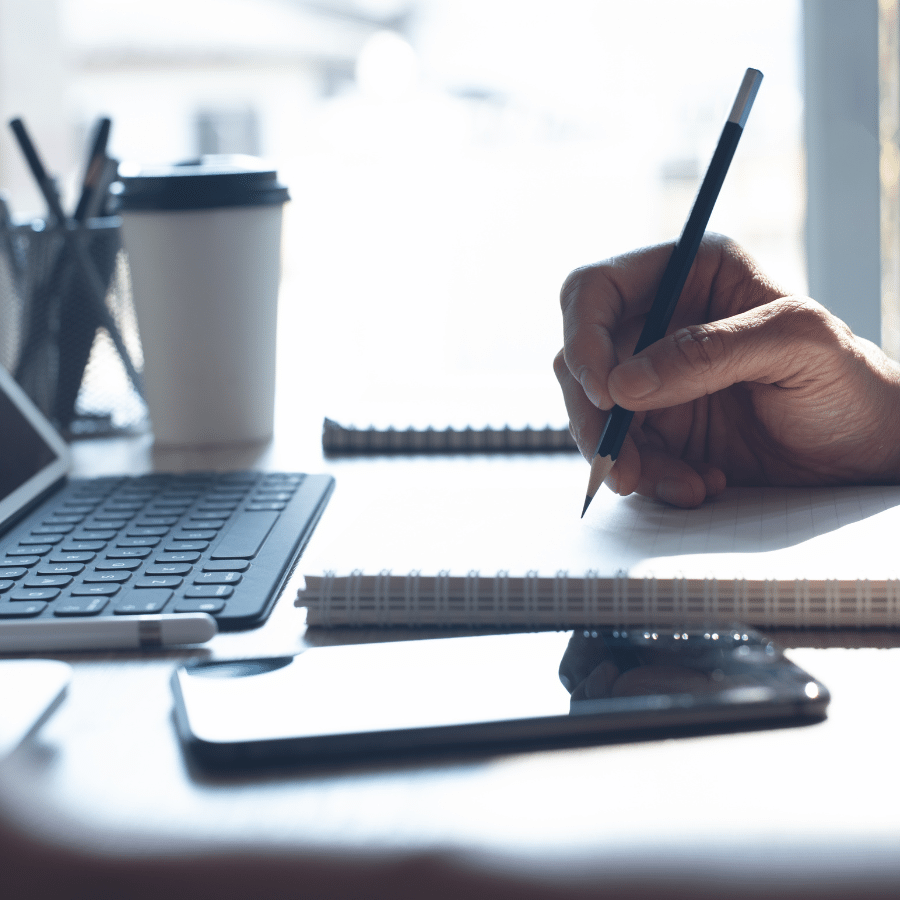介紹
如果您是動覺學習者,有很多有效學習的方法,而不僅僅是閱讀。其中許多技巧也對其他類型的學習者有幫助。
行使
- 運動已被證明可以改善記憶力和大腦功能。如果您對考試感到焦慮,請考慮在考試前運動 20 分鐘。它將幫助您在考試期間放鬆並保持專注,這將使您在考試後睡得更好。
- 《美國臨床營養學雜誌》發表的一項研究發現,經常運動的人在認知測試中比不經常運動的人得分更高。
列出重要術語、事實和想法。
- 建立閃存卡系統。
- 使用筆記本或索引卡記下要點。
- 使用文字處理器建立要點檔案。
- 透過集思廣益和組織想法來建立心智圖,然後以任何對您有意義的方式將它們寫下來 - 例如每行一個單字或在標題下分組在一起(請參閱下面的範例)。
考試前休息一下。
If you are a kinesthetic learner and need to take an exam, your body may be telling you that it’s time for a break. If so, take one!
The best way to ensure that the break is effective is by changing environments altogether. It doesn’t matter whether it’s going outside for fresh air or finding another room in which to study; just make sure that when you return from this break, all of your senses will feel refreshed and ready for more work.
Additionally, do not eat or drink anything during this 10-minute period (with the exception of water). Food consumption can cause drowsiness–and no one wants their mind wandering during an important test! Also avoid activities such as listening to music while studying because they might make studying seem less like work than simply fun time with friends or family members who enjoy music as much as we do ourselves
用不同顏色寫下考試時間和地點。
這是追蹤所有考試的好方法,尤其是當您參加不止一場考試時。在日曆或計畫本上用不同顏色寫下時間和地點。確保您知道每次考試在哪裡進行以及考試何時開始和結束。
練習在材料上測試自己。
您可以對材料進行多次練習測試。這是幫助您記住和鞏固所學的好方法,因為它會給您一些具體的結果,顯示您的優勢所在以及您的知識中仍有差距。它還可以幫助您識別需要集中更多注意力的領域,以便不僅使它們更強,而且在考試期間需要時更容易回憶起來。
考試前放鬆心情。
You have a lot going on and it’s hard to relax. But no matter how much you may feel like you have to do, the best thing you can do for yourself is allow some time and space where you can relax before the exam.
Here are some ideas for how to chill out:
- 透過鼻子深吸一口氣,屏住一會兒,然後慢慢地用嘴巴呼氣——如果需要的話,重複五次或更多次!它有助於平靜緊張的情緒,以便您在考試時可以更好地集中註意力。
- 到校園外或校園周圍散步;呼吸新鮮空氣有助於清除雜念(誰知道呢?甚至可能會遇到想要一起學習的人)。
- 在家做一些伸展運動-既快速又有效!只需放一些音樂,同時伸展全身不同的肌肉群(手臂/肩膀;腿部/背部),在每次伸展完成時集中精力釋放緊張感——這將有助於防止測試日晚些時候的酸痛……或甚至可以在測試前預防酸痛。
練習在考試期間從記憶中回憶關鍵概念和想法,而不是從筆記或書本。
During the exam, practice recalling key concepts and ideas from memory. Don’t rely on notes or books. Recalling information from memory is a skill that can be practiced, and it’s much more effective than reading or rereading.
When you are asked a question, try to answer it without looking at your notes first. If you do look at them, don’t spend too long doing so; just enough time to jog your memory of what was written down (and maybe even make some corrections). Then go back into recall mode as quickly as possible!
有效學習的方法有很多,不只是閱讀
While reading is an important part of the learning process, it’s not the only way to study effectively. In fact, there are many different ways to study effectively that involve more than just reading.
In order to learn and retain information better, try studying in a way that works best for you–whether it be listening or watching video lectures (audio), doing problem sets/exercises (kinesthetic), making flashcards from lecture slides or textbooks (visual) etc., so long as it helps you remember material better!
結論
準備考試的最佳方法是找到適合您的學習方法。如果您是動覺學習者,那麼寫下筆記或進行練習測驗可能會有所幫助。如果您是聽覺學習者,請嘗試在學習時聽音樂或每小時休息一下,這可以幫助您保持頭腦清醒,並在考試時專注於最重要的事情!









